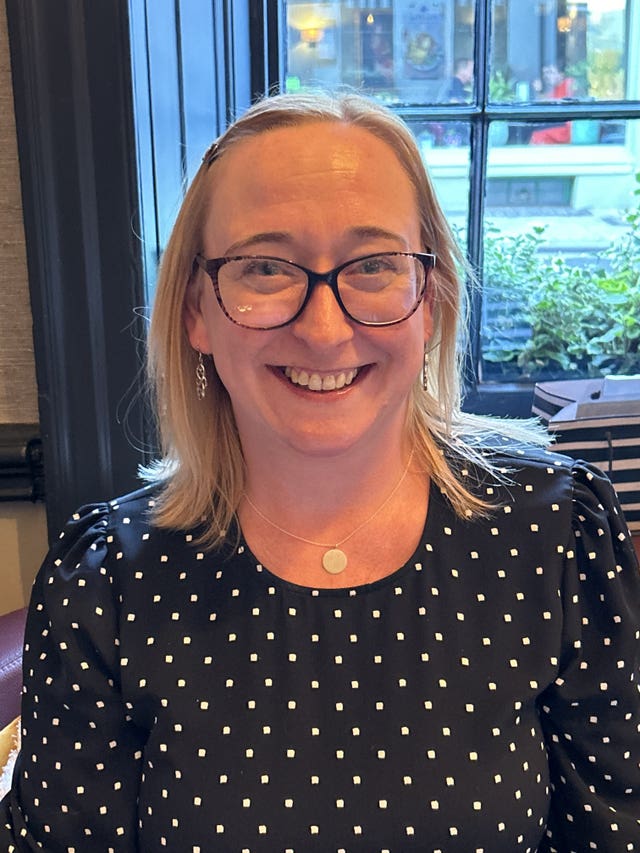Campaigners say women deserve better as they seek to decriminalise abortion
A new amendment to the Crime and Policing Bill is being brought by Labour MP Tonia Antoniazzi.

Health professionals, charities and MPs are renewing efforts to decriminalise abortion, declaring that “women deserve better” and should not face investigation under “archaic” law.
Organisations say more than 100 women are believed to have been investigated by the police in recent years under the current 164-year-old law, which sees abortion in England and Wales remain a criminal offence.
It is legal with an authorised provider up to 24 weeks, with very limited circumstances allowing one after this time, such as when the mother’s life is at risk or the child would be born with a severe disability.

A new amendment to the Crime and Policing Bill, brought by Labour MP Tonia Antoniazzi, stating that “no offence is committed by a woman acting in relation to her own pregnancy”, has been backed by a number of groups including royal medical colleges, charities and trade unions.
One – healthcare provider the British Pregnancy Advisory Group (Bpas) – said the change would do away with the threat of investigation, arrest, prosecution or imprisonment currently faced by some women.
It insisted it would not change any law regarding the provision of abortion services within a healthcare setting, including the time limit, the grounds for abortion or the requirement for the approval of two doctors.
It said anyone, including a medical professional, who assisted a woman in obtaining an abortion outside the law would remain liable for prosecution.
Bpas said: “For every woman who ends up in court, at least 10 others are subjected to prolonged police investigations which can prevent them from getting the mental health support they desperately need and which have resulted in existing children being separated from women whose cases never make it to court. Women deserve better.”
Ms Antoniazzi said the current law is “unacceptable”, adding: “There is simply no world in which prosecuting a vulnerable woman who may have experienced a medical complication, miscarriage or stillbirth is the right course of action.”
She said her amendment, laid before Parliament on Tuesday, is “tightly drawn – not changing anything about provision of abortion care, the time limit, the right to conscientious objection or any other aspects of abortion law”.
She added: “I am confident that, when Parliament has the opportunity to vote on these proposals, my colleagues will agree that never again should a woman be prosecuted for ending her own pregnancy in England and Wales.”
The issue most recently came to the fore earlier this month with the case of a woman who took medication at home during a coronavirus lockdown in 2020.
Nicola Packer, 45, was cleared by a jury last week of “unlawfully administering to herself a poison or other noxious thing” with the “intent to procure a miscarriage”.
She had taken prescribed abortion medicine when she was around 26 weeks pregnant, beyond the legal limit of 10 weeks for taking such medication at home.
She told jurors she did not realise she had been pregnant for more than 10 weeks.

Following the trial, her friend said she had been “persecuted” for a “tragic accident”, while the Royal College of Obstetricians and Gynaecologists (Rcog) claimed the trial showed “just how outdated and harmful” current abortion law is as they backed calls for reform.
The case of Carla Foster, jailed in 2023 for illegally obtaining abortion tablets to end her pregnancy when she was between 32 and 34 weeks pregnant, eventually saw her sentence reduced by the Court of Appeal and suspended, with senior judges saying that sending women to prison for abortion-related offences is “unlikely” to be a “just outcome”.
The amendment on decriminalisation is said to have the support of more than 60 cross-party MPs and backers hope for a vote on it as early as next month.
The latest attempt follows repeated calls to repeal sections of the 19th-century law – the 1861 Offences Against the Person Act – after abortion was decriminalised in Northern Ireland in 2019.
MPs had been due to debate similar amendments removing the threat of prosecution against women who act in relation to their own pregnancy at any stage, but these did not take place after Parliament was dissolved last summer for the general election.
It is expected a separate amendment could be published by a group led by fellow Labour MP Stella Creasy, to not only decriminalise abortion but to “lock in” the right of someone to have one and protect those who help them.
Ms Creasy last week said the law must be changed so that “the right to choose is a human right”, ensuring no repeat of “such awful cases and victimisation of vulnerable women again”.
The amendment would not cover Scotland, where a group is currently undertaking work to review the law as it stands there.
Last month, Scotland’s women’s health minister, Jenni Minto, said she was “disappointed” that some still have to travel to England for late-term abortions, amid concerns that women in Scotland can only have a termination after 20 weeks in cases where there is either a foetal abnormality or the woman’s life is at risk.
Louise McCudden, from provider MSI Reproductive Choices, said: “No-one should face criminal prosecution for ending their own pregnancy. Our Victorian abortion laws are not only outdated, but inconsistent, with abortion now decriminalised in Northern Ireland but not in England, Wales, or Scotland.
“As one of the world’s largest abortion providers, we’re deeply concerned to see so many women face prosecution, even jail, in Britain.”





